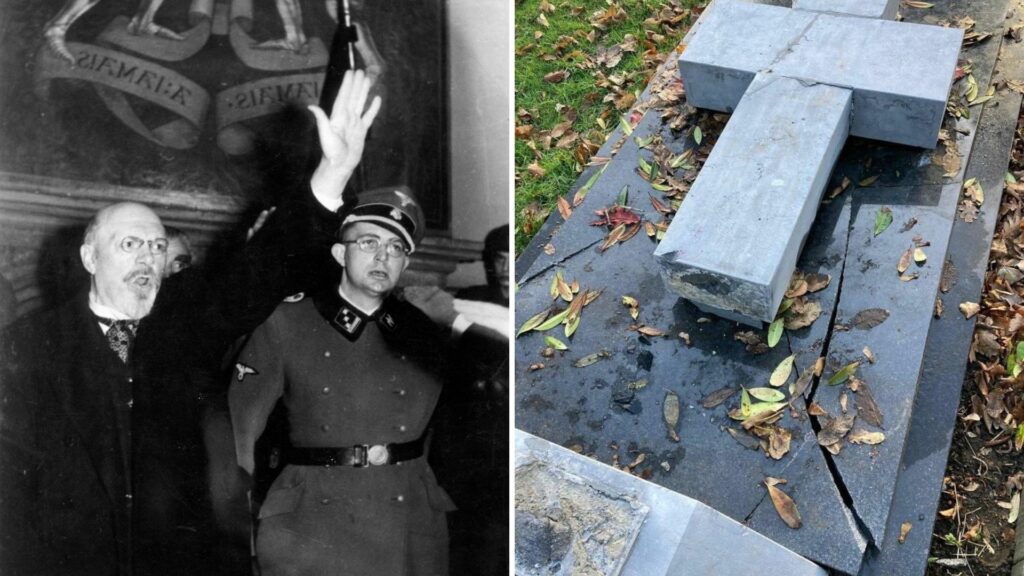The grave of August Borms, who was executed after World War II for collaborating with the Nazis, has been destroyed for the second time in half a year – prompting Filip Dewinter, a member of the Flemish far-right Vlaams Belang party, to ask for camera surveillance at the cemetery.
At the historic cemetery in the Antwerp district of Merksem, the grave of August Borms has been destroyed again. About half a year ago (in June 2022), this happened as well. Then, the City of Antwerp took on the restoration costs.
"77 years after WWII, the hatred continues," Dewinter, who is also an Antwerp city councillor, told VRT. "We deeply regret the damage. However controversial the figure of Borms may be, he is part of the history of the Flemish Movement, especially in Antwerp. One should respect that."
Borms (1878 - 1946) was a Flemish nationalist and a controversial figure in the history of the Flemish Movement: after World War II, he was convicted of collaboration with the Nazi occupiers and executed by firing squad by the Belgian State in 1946.
In World War I, Borms already represented the interests of the Flemish soldiers who received their orders in the Belgian Army in French, and collaborated with the German occupiers to facilitate the establishment of a fully independent Flanders. During World War II, he again sided with the Germans and collaborated with the Nazis.
He was appointed as chair of the "Reparations Committee," which investigated alleged atrocities against First World War collaborators by the Belgian Government and distributed compensation to them. He distributed some six million francs to the supposed victims, including a sizeable sum to Borms himself.
Additionally, he and his daughter Anita travelled through Central Europe in 1943 as they were shown around the forced labour camps in Staaken (Berlin) and Auschwitz (IG Farben complex). While it is unclear whether they also visited the Birkenau concentration camp a few kilometres away, historic experts have pointed out that its existence would have been "hard to miss," partly "because of the stench."
Related News
- The betrayal of Anne Frank still unsolved
- Antwerp exhibition shows first photos after city bombed in 1944
- A number of Belgian collaborators still receive German war pension
After their return, Anita wrote in 'Vrouw en Volk' ("Woman and People" – a monthly magazine of the Flemish National Women's Association during WWII) that they had been "generously received" in Auschwitz.
For Dewinter, Borms is a "symbolic figure with his good and bad sides," but "it is not right to destroy his grave." Although there is no evidence for his claims, he is convinced that those who destroyed the grave come from the extreme left.
"The person responsible for the previous vandalism has never been found and that will also be very difficult with these ones. Therefore, we insist on installing camera surveillance at the cemetery," Dewinter said.

